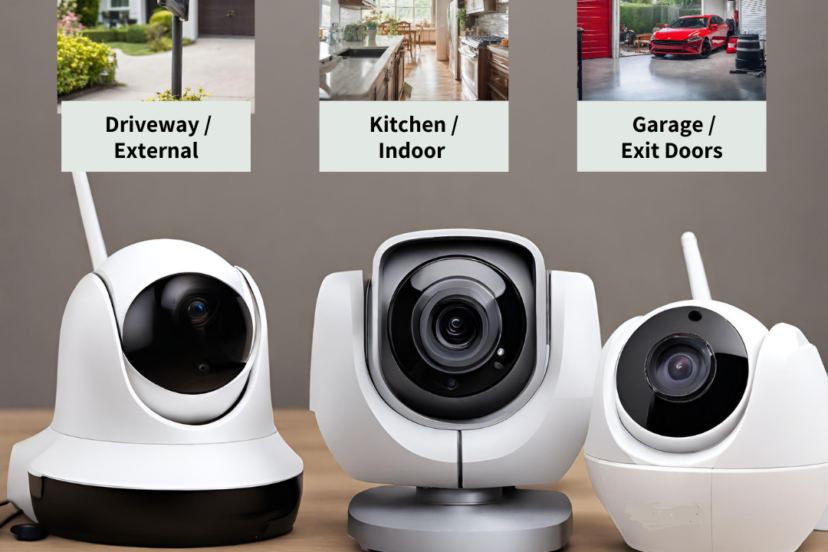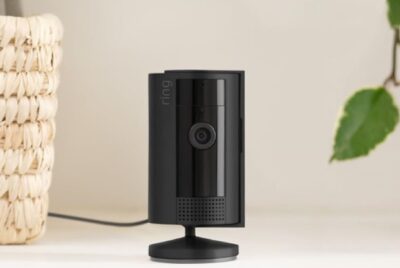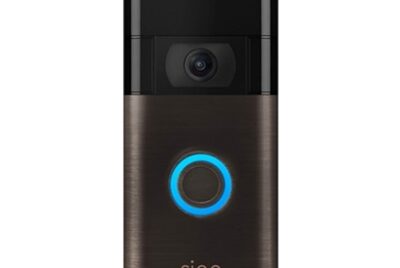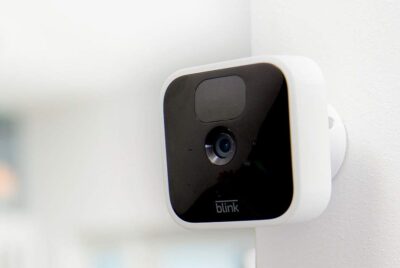Optimal Camera Placement for Home Security Cameras
Home security cameras have become an essential part of protecting our homes and loved ones. They serve as vigilant sentinels, providing us with peace of mind and invaluable evidence when needed. However, the effectiveness of these cameras depends significantly on their placement. In this article, I’ll guide you through the optimal camera placement for home security cameras, providing you with valuable suggestions and the reasons behind them.
Factors to Consider for Optimal Camera Placement
To ensure your home security cameras are at their most effective, consider the following factors:
Exterior Camera Placement
Front Door
The front door is a common entry point for intruders. Placing a camera here not only deters potential threats but also provides a clear view of anyone approaching your home.
• Ensure it’s at eye level for clear facial identification.
• Use a wide-angle lens for complete coverage.
Backyard and Garden
A camera overlooking the backyard or garden can help monitor any suspicious activity, especially if these areas have multiple access points.
• Aim cameras at entrances, like gates and fences.
• Consider motion-activated floodlights to deter intruders.
Garage and Driveway
Your garage may house valuable items. A camera in these areas can protect your belongings and monitor any unauthorized access.
• Use dome-shaped cameras for a wider range.
• Combine them with motion sensors.
Interior Camera Placement
Living Room
Consider placing a camera in the living room, which is often a central area of activity. It can capture valuable footage of anyone entering your home.
Kitchen
The kitchen is another vital area. It’s not just about burglary; it’s also about safety. A camera here can help in emergency situations like fires or accidents.
Bedrooms
Bedrooms may contain valuable items and offer a sense of personal security. Placing cameras here ensures an extra layer of protection.
Maximizing Visibility
Eliminating Blind Spots
To avoid blind spots:
• Position cameras at angles, covering overlapping areas.
• Use PTZ (Pan-Tilt-Zoom) cameras for versatility.
Proper Lighting
Good lighting is essential for camera effectiveness:
• Install motion-activated lights.
• Use infrared or white light illuminators for night vision.
Benefits of Proper Camera Placement
The advantages of proper camera placement are multifaceted:
• Deterrence: Cameras in visible locations deter potential intruders as they know they’re being watched.
• Evidence Collection: In case of a security breach, well-placed cameras capture crucial evidence that can aid law enforcement.
Remote Monitoring and Smart Integration
Modern security systems offer remote monitoring through smartphones. This allows you to keep an eye on your property even when you’re not at home. Smart integration with devices like doorbells and alarms enhances security.
Common Mistakes to Avoid
Overlooking Vulnerable Areas
Don’t neglect areas like basements, attics, or blind spots in your yard. Intruders can exploit these areas.
Privacy Concerns
Always inform your neighbors about your security cameras to maintain good relations and respect their privacy by ensuring your cameras do not capture their property.
Poor Maintenance
Regularly clean and maintain your cameras. Dirty lenses can obstruct views and reduce their effectiveness.
Conclusion
Optimal camera placement is a critical aspect of home security. By following these guidelines, you can maximize the effectiveness of your security cameras. Remember, a well-placed camera not only deters potential threats but also provides you with peace of mind.
FAQs
1. What’s the best type of camera for outdoor use?
• Weatherproof cameras with infrared night vision are ideal for outdoor security.
2. How can I prevent my security cameras from invading my neighbor’s privacy?
• Point your cameras away from their property and inform them about your security setup.
3. Are smart security systems worth the investment?
• Smart integration enhances security and convenience, making it a valuable investment.
4. How often should I clean and maintain my security cameras?
• Regularly check and clean your cameras to prevent dirt or debris from obstructing their view, at least once every few months.
5. Do security cameras really deter potential intruders?
• Yes, visible security cameras are a significant deterrent to potential threats. They make your property less appealing to would-be burglars.




